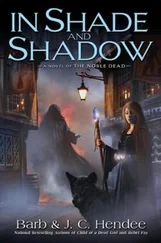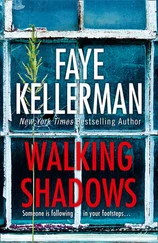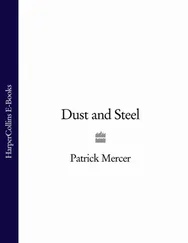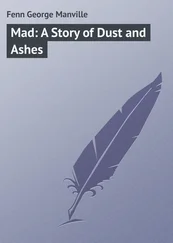Lyndsay Faye - Dust and Shadow
Здесь есть возможность читать онлайн «Lyndsay Faye - Dust and Shadow» весь текст электронной книги совершенно бесплатно (целиком полную версию без сокращений). В некоторых случаях можно слушать аудио, скачать через торрент в формате fb2 и присутствует краткое содержание. Жанр: Старинная литература, на английском языке. Описание произведения, (предисловие) а так же отзывы посетителей доступны на портале библиотеки ЛибКат.
- Название:Dust and Shadow
- Автор:
- Жанр:
- Год:неизвестен
- ISBN:нет данных
- Рейтинг книги:5 / 5. Голосов: 1
-
Избранное:Добавить в избранное
- Отзывы:
-
Ваша оценка:
- 100
- 1
- 2
- 3
- 4
- 5
Dust and Shadow: краткое содержание, описание и аннотация
Предлагаем к чтению аннотацию, описание, краткое содержание или предисловие (зависит от того, что написал сам автор книги «Dust and Shadow»). Если вы не нашли необходимую информацию о книге — напишите в комментариях, мы постараемся отыскать её.
Dust and Shadow — читать онлайн бесплатно полную книгу (весь текст) целиком
Ниже представлен текст книги, разбитый по страницам. Система сохранения места последней прочитанной страницы, позволяет с удобством читать онлайн бесплатно книгу «Dust and Shadow», без необходимости каждый раз заново искать на чём Вы остановились. Поставьте закладку, и сможете в любой момент перейти на страницу, на которой закончили чтение.
Интервал:
Закладка:
Mr. Dunlevy shook my hand and bowed to Miss Monk. “I heartily apologize for the deception I’ve practiced,” he said, turning to Holmes. “I will think more carefully before engaging again in any undercover work. Good day to you all.”
When the door had shut, I ventured, “I do hope you intend to tell us how you worked it out, my dear fellow, for the sake of our mental health if nothing more.”
Holmes was tossing newspapers about to make room for other newspapers he prized more highly. “It is a simple enough chain, once one observes the incongruities. As I have said before, why should an army friend only mount a search a month after a traumatic event has passed? And why should a confidant take two months’ time merely to pinpoint his comrade’s lodgings on the night in question? On the other hand, why should a man harp upon the least sensational murder in a series of such crimes unless he truly was involved somehow? The rest was mere painstaking research. He had no acquaintance at Lambeth Workhouse, yet he questioned its inmates; he had no acquaintance with me, and yet he approached Miss Monk with a scintillating account of Tabram’s death. However, nothing proved so fruitful as my habitual scouring of the papers. I draw your attention to the Star, morning edition of September fifth, and again the fifth of October: they are pasted in my commonplace book, there on the desk.”
The volume lay open, weighted with a box of hair-trigger cartridges. I rose and examined the articles in question. “‘The City of Night; A Continuing Journal of the East End,’” I read. “‘By S. Leudvyn.’”
“A most informative diary of an undercover reporter. I’ve unearthed several others. The anagram was simple enough, but I consulted the offices to be sure I had my man.”
“You are certain that journalism was his only consideration?”
My friend dropped the editions he had gathered with an angry flourish. “I grow weary of the accusation that I have arranged a series of rendezvous between Miss Monk and London’s vilest criminal dregs, Doctor,” he exclaimed severely. “I can assure you that—”
“Begging both your pardons, but I slept poor enough with one little one’s hand in my hair and another’s foot in my gut. It were a right well-populated guest room, and I’m clean done. Oh, no,” Miss Monk assured us, rapidly making her way to the door, “the bed was intended for one, but the natives are that clever. I’m off home. I’ll see you at the usual time, gents. Keep to it, Mr. Holmes.”
When the door had shut, I turned back to my friend. “My dear chap, if I implied you held Miss Monk’s safety lightly, please believe that I am sorry for it,” said I.
Though my apology fell upon stony ground, I determined to carry on in spite of the rigidly set shoulders and deliberate complacency of London’s finest sleuth. “Is it not odd that Blackstone, if he is a cunning murderer, should enact a crime while still in Dunlevy’s company?”
“Hardly odd when one considers that Dunlevy had been plied with drinks the entire evening, perhaps purposefully, then packed off into the loving arms of Miss Pearly Poll. Blackstone would have imagined him entirely out of the way.”
“I see,” I acknowledged. “He did not know Dunlevy is a journalist, after all. Yes, that is very plausible. But Holmes—”
“What is it, Watson?” he demanded, snapping shut the edition he held.
“Dunlevy said he only continues to tail Miss Monk during special circumstances.”
“Of course he does.” Holmes pulled out a notebook and began to jot down cross-references. “He no longer tails her on the usual days, when she hails a cab and makes for Baker Street. He only tails her when she wanders, on foot and unescorted, through the labyrinthine darkness of Whitechapel.” My friend cocked an ironic eye at me and added, “Why he would do such a thing I leave to your unparalleled imagination.”
CHAPTER TWENTY The Thread
As Holmes’s investigations continued, I grew ever more certain that I knew next to nothing of what he was investigating. However, to my intense private satisfaction, every day he grew more visibly active, until, on Monday the fifteenth, he threw his sling into the fire in a fit of impatience and declared, “If Dr. Agar’s work and yours combined, my dear Watson, have not had their effect by now, then God help the British public, who are plagued with new ailments every day.”
The following morning, soon after I had dressed, I heard Holmes’s footsteps approaching my bedroom, and a brief knock preceded the man himself.
“How soon can you be in a cab?”
“Instantly. What is the matter?”
“George Lusk requests our aid in the most urgent language. Make haste, my dear fellow, for he is not a man to trifle with our time!”
When we arrived at Tollet Street, Holmes was out of the cab in a moment, bounding up the stairs and leaning against the bell. Immediately we were shown in to the same pleasant sitting room, occupied by the same palm fronds and self-important feline.
“I am very glad you both have come,” George Lusk declared, shaking our hands firmly. His lively brow was clouded with anxiety and the downward sweep of his moustache emphasized his unease. “The thing is a repulsive hoax, of course; I have no doubt it is merely a boon for those vultures of the popular press, but I thought it best to call you in.” He gestured to the rolltop desk.
Holmes reached it in an instant and lifted the slats. A strong smell, which I realized had faintly infused the room all along, permeated the atmosphere. I recognized it at once as spirits of wine, which was everywhere employed as a medical preservative and which I had often used myself during my years at university.
My friend seated himself at the desk, surveying a small box of plain cardboard, resting on the brown paper in which it had arrived. Mr. Lusk and I crowded round either shoulder to witness him open the receptacle. Inside sat a mound of glistening flesh.
“Well, Doctor?” said Holmes, glancing up at me. He pulled a pocketknife from his frock coat, opened it, and passed it to me along with the sinister box. I probed the object carefully.
“It is a portion of a kidney.”
“Nearly half, I would say from the angle of the cut and the arc of this side. Human?”
“Undoubtedly.”
“Gender? Age?”
“I could not tell you. If it is half, as you say, then the kidney is adult, but beyond that, further identification is impossible.”
“It does not appear to be injected with the formalin* used for dissection organs. Tissue preserved only in spirits of wine would inevitably deteriorate without a fixative and grow quickly useless in the classroom, so we can rule out a prank by an undergraduate. However, the ethyl alcohol it has been resting in is easily obtained.”
“This letter accompanied the organ,” Mr. Lusk indicated.
My friend first inspected the container itself, followed by the paper wrapping, before reaching for the document which explained, in the most vile terms and debased calligraphy I had ever laid eyes on, the contents of that horrid box.
From hell
Mr Lusk
Sor
I send you half the Kidne I took from one women prasarved it for you tother piece I fried and ate it was very nise I may send you the bloody knif that took it out if you only wate a whil longer.
Signed Catch me when
You can
Mishter Lusk
“Black ink, cheapest foolscap, no finger marks or other traces,” Holmes said softly. “‘From hell,’ indeed! What sort of frenzied imagination could be capable of constructing such trash?”
“It is a hoax, surely,” Mr. Lusk insisted. “Everyone knows Catherine Eddowes’s kidney was taken, after all, Mr. Holmes. It is the organ of a dog. Oh, I do beg your pardon, Dr. Watson—if human, as you say, perhaps it is a prank enacted by a roguish medical examiner.”
Читать дальшеИнтервал:
Закладка:
Похожие книги на «Dust and Shadow»
Представляем Вашему вниманию похожие книги на «Dust and Shadow» списком для выбора. Мы отобрали схожую по названию и смыслу литературу в надежде предоставить читателям больше вариантов отыскать новые, интересные, ещё непрочитанные произведения.
Обсуждение, отзывы о книге «Dust and Shadow» и просто собственные мнения читателей. Оставьте ваши комментарии, напишите, что Вы думаете о произведении, его смысле или главных героях. Укажите что конкретно понравилось, а что нет, и почему Вы так считаете.












